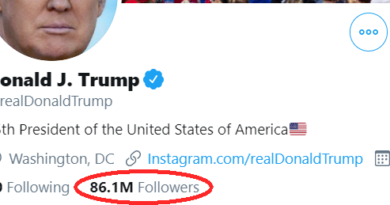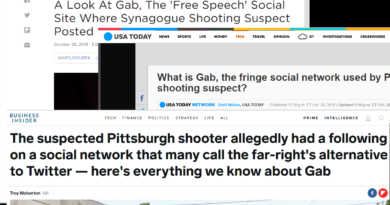EFF: Facebook, Instagram Lack Transparency on Government-Ordered Takedown of Content
Who Has Your Back Report: Censorship Edition
Since 2011, the Electronic Frontier Foundation (EFF) has published its annual “Who Has Your Back Report” on government demands for user data. But this year, EFF focused the report on how major technology companies are responding to government-requested censorship. According to EFF, they evaluated publicly-available policies at sixteen companies and awarded stars in five categories: transparency on legal takedown requests, transparency on platform policy takedown requests, providing meaningful notice, allowing appeals, and limiting the geographic scope of takedowns. To earn a star in the first two categories, companies must regularly publish detailed information about government takedown requests.
What people can say on the Internet is increasingly being regulated, not by governments, but by social media companies whose content moderation policies and community standards are often opaque and seemingly arbitrary. Users deserve to know if a government ordered their Facebook or Twitter post removed, how to appeal censorship decisions, and what caused their speech to be flagged by government officials.
The other categories “evaluate whether a company offers a dispute process, notifies users of takedowns and suspensions, and reasonably minimizes the geographic scope of removals.” According to EFF, a handful of social media and app store platforms—including the Apple App Store, Google Play Store, and YouTube—have emerged as leaders in transparency, publicly disclosing how often and why they comply with takedown requests and notifying users when their posts are targeted for removal. But others major platforms, notably Facebook and Instagram, have failed to adopt “truly meaningful notice practices and policies that inform users of crucial details, like which governments have come knocking and why.”
A Growing Trend of Online Censorship
In its press release about the report, EFF noted that social media and tech companies are facing increased demands from governments to remove user content, purportedly in the name of combating hate speech and extremism. “What people can say on the Internet is increasingly being regulated, not by governments, but by social media companies whose content moderation policies and community standards are often opaque and seemingly arbitrary.” EFF asserted that users of social media deserve to know if a government ordered their online posts removed, how they can appeal censorship decisions, and what caused their speech to be flagged by government officials.
The EFF’s report gave YouTube five stars for its self-published transparency report (published by parent company Google), noting that YouTube discloses not only the number of government takedown requests overall and by country, but also the details and outcomes of individuals requests. However, it is important to note that this report does not address the internal content moderation policies of these social media platforms, which can provide a convenient end-run around legal protections from government censorship. As is regularly reported in the alt media, many non-status quo voices are finding themselves on the receiving end of “opaque and seemingly arbitrary” content moderation and community standards from social media giants like YouTube/Google, Facebook and Twitter in this age of “fake news”.
Related:
- Facebook Speech Police Ban Independent Author for Sharing Article, November 24, 2017
- Facebook Security Chief Warns of Creation of Ministry of Truth, October 11, 2017
Resource Links:
- Facebook, Instagram Lack Transparency on Government-Ordered Content Removal Amid Unprecedented Demands to Censor User Speech, EFF’s Annual Who Has Your Back Report Shows, Electronic Frontier Foundation [Press release], May 31, 2018
- Who Has Your Back? Censorship Edition 2018, Electronic Frontier Foundation, May 8, 2018
- Question mark on black background image credit PoliticalNewsReport.com



